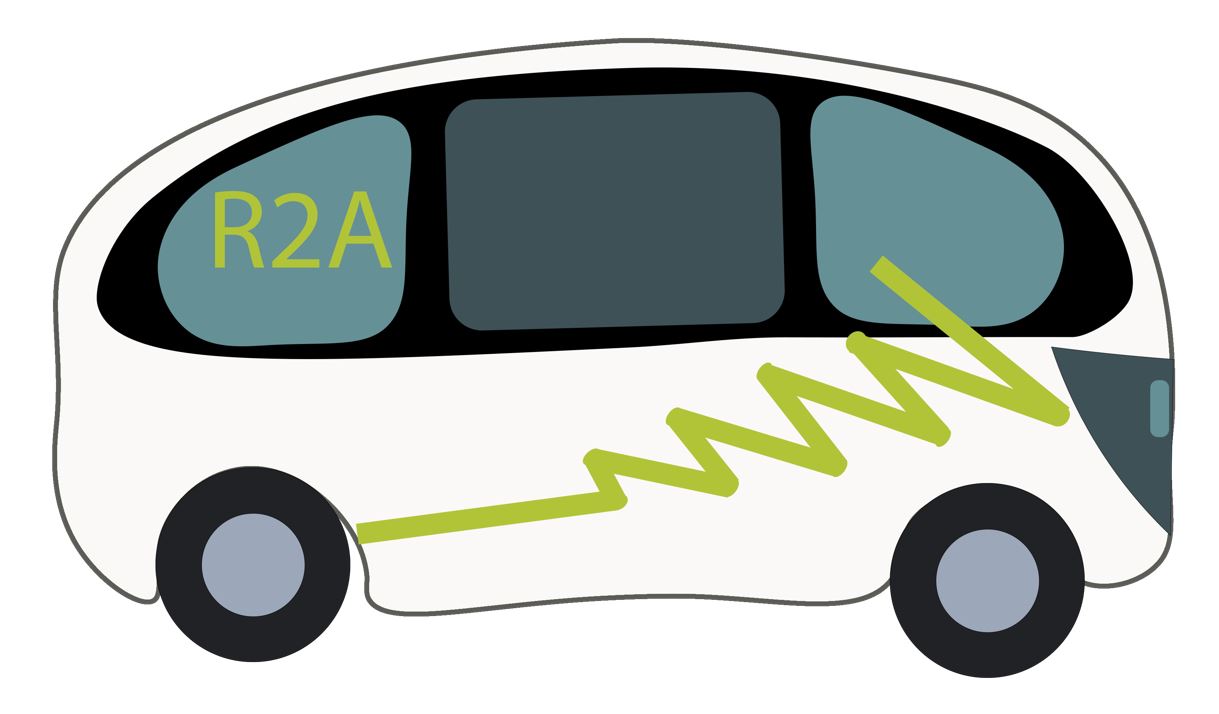Press Release, 23/08/2021
 Combining the efforts of ten automated shuttle demonstrations, the recently awarded EU Project Ride-to-Autonomy will help to develop new passenger mobility concepts leading to healthier, safer, more accessible, sustainable, cost-effective and demand-responsive transport.
Combining the efforts of ten automated shuttle demonstrations, the recently awarded EU Project Ride-to-Autonomy will help to develop new passenger mobility concepts leading to healthier, safer, more accessible, sustainable, cost-effective and demand-responsive transport.
Automation is an essential part of the future transport development. In this context, Ride-to-Autonomy will demonstrate autonomous shuttles’ integration into the transport system in ten EU cities:
- Differdange (LU) – Steel industry city to test novel on-demand services to visitors of the Luxembourg Science Centre;
- Charleroi (BE) – Airport city aiming at connecting gates at the terminal building’s far ends, easing and hastening travellers’ passage;
- Aveiro (PT) – Touristic city with schools, museums, and University, to develop a Tech City initiative linking railway station, city centre, hospital and University of Aveiro campus;
- Barcelona (ES) – Automated shuttle bus at the Port of Barcelona;
- Inverness (UK) – Capital of the Highlands with University and Business Park, to test shuttle service linking Inverness Campus and Retail and Business Park via a car-free route;
- Trikala (EL) – Small touristic city with Christmas festival, to replace an existing uneconomic public transport bus line over a dedicated lane;
- Tartu (EE) – Museum and University city to connect Estonian National Museum to the city centre on an otherwise challenging route;
- Reggio Emilia (IT) – Mid-size Italian city to link its High Speed Train Station with Max Mara fashion house;
- Tampere (FI) – The most populated inland city in Nordic countries to develop public transport feeder service to novel tramline servicing a suburban area;
- Vianden (LU) – Small village with medieval castle, to test shuttle between the bus station to the castle, automated minibus.
The variety in approach and context will provide the project the ability to analyse the system performance in view of safety and environmental impact, as well as its multimodal integration with the transport network. The individual and public response, as well as socio-economic potential of the services, will also be looked at.
Planning, acquiring and operating of driverless shuttles present significant challenges for local authorities and stakeholders. The “Scalable Model” toolbox will provide a set of blueprints and recommendations to support any town or city for this purpose. Ride-to-Autonomy aims at harmonising research and innovation efforts around automated shuttle solutions. It will collect lessons learned, not just from the pilot sites, but also from further sites expressing willingness to exchange knowledge and lessons learned. To establish these key deliverables, Ride-to-Autonomy involves partners of three major shuttle demonstration projects: SHOW, FABULOS and ART FORUM and their own demonstration sites.
A Kick-off Meeting was held on the 6th and 7th of May 2021, initiating project activities and presenting all consortium partners. The Project, funded by the European Commission, DG Connect, continues from April 2021 to October 2022. The Project Partners are: Rupprecht Consult, LuxMobility, MAPtm, POLIS, Future Mobility Network, ERTICO, UITP, European Passengers’ Federation, Forum Virium, Navya.
R2A has received funding from the European Union’s DG CONNECT 2020 Work programme under grant agreement No. LC-01632937.
More information: http://summalab.nl/r2a/


 Stay informed!
Stay informed!